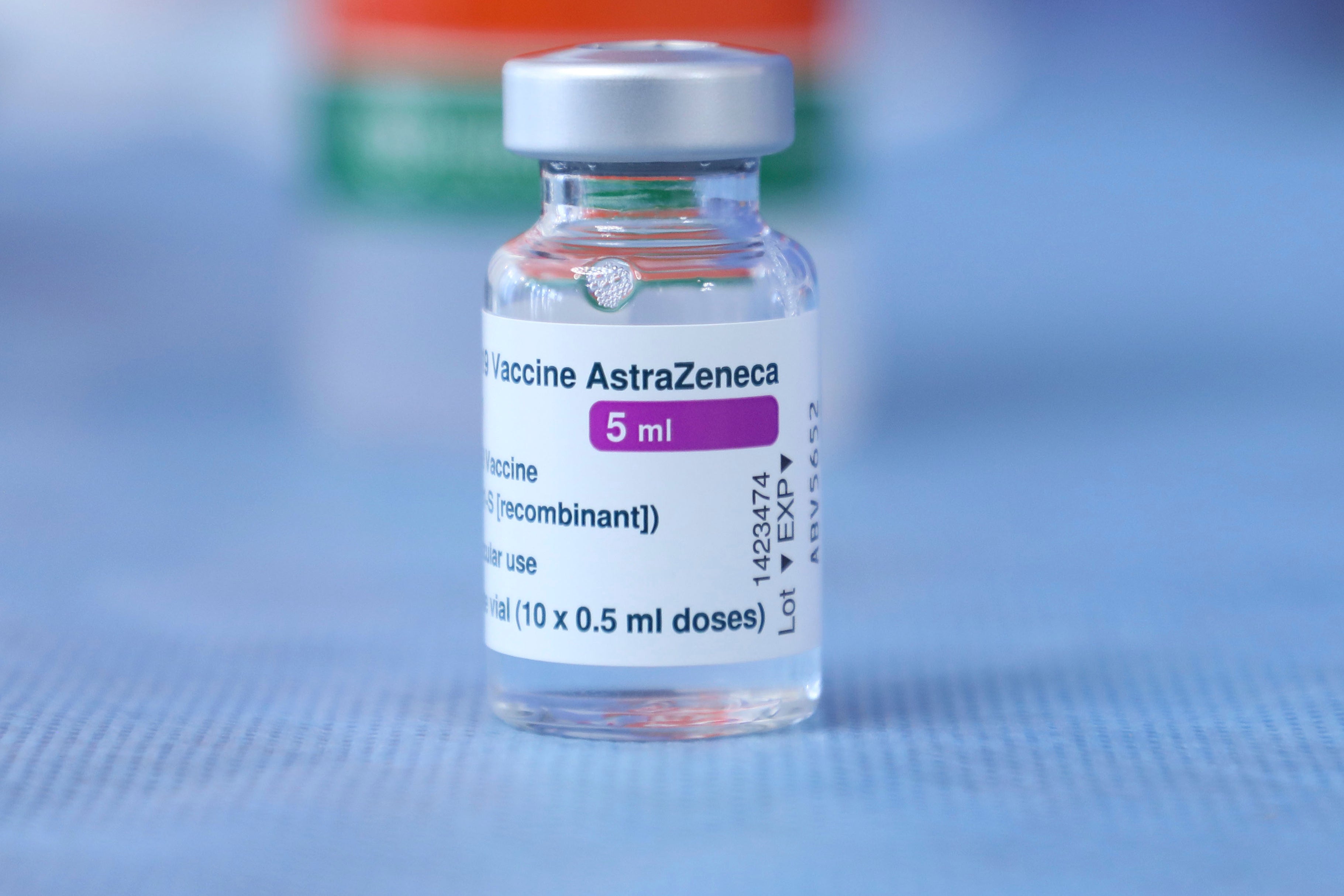Canadian panel recommends AstraZeneca pause for under 55
Two officials familiar with the matter say Canada’s National Advisory Committee on Immunization is recommending a pause on AstraZeneca COVID-19 vaccinations for people under 55 for safety reasons

Your support helps us to tell the story
From reproductive rights to climate change to Big Tech, The Independent is on the ground when the story is developing. Whether it's investigating the financials of Elon Musk's pro-Trump PAC or producing our latest documentary, 'The A Word', which shines a light on the American women fighting for reproductive rights, we know how important it is to parse out the facts from the messaging.
At such a critical moment in US history, we need reporters on the ground. Your donation allows us to keep sending journalists to speak to both sides of the story.
The Independent is trusted by Americans across the entire political spectrum. And unlike many other quality news outlets, we choose not to lock Americans out of our reporting and analysis with paywalls. We believe quality journalism should be available to everyone, paid for by those who can afford it.
Your support makes all the difference.Canada’s National Advisory Committee on Immunization is recommending a pause on AstraZeneca COVID-19 vaccinations for people under 55 for safety reasons, two officials with the matter told The Associated Press on Monday.
The officials confirmed the recommendation on condition on anonymity as they were not authorized to speak publicly before the announcement. It remains a recommendation and it is up to each of Canada’s provinces to decide to follow it or not.
Dr. Joss Reimer of Manitoba’s Vaccine Implementation Task Force said despite the finding that there was no increase risk of blood clots overall related to AstraZeneca in Europe a rare but very serious side effect has been seen primarily in young women in Europe.
“So out of abundance of caution, Manitoba will be recommending that these vaccines only be used in people who are 55 or older at this time. I do want to say this is a pause while we wait for more information to better understand what we are seeing in Europe,” Reimer said.
Reimer said the increase in the rare type of blood clot happens affects somewhere around one in 100,000 or one in a million people who receive AstraZeneca. She said it typically happens between four and 20 days after getting the shot and the symptoms can mirror a stroke or a heart attack.
Read more:
Reimer said they have not seen any of these cases in Canada.
“While we still believe the benefits for all ages outweigh the risks I’m not comfortable with probably. I want to see more data coming out of Europe so I know exactly what this risk benefit analysis is,” Reimer said.
Ontario Premier Doug Ford, the leader of Canada’s most populous province, suggested his province would do a pause as well.
“I’d rather wait than roll the dice,” Ford said.
Several European countries that had suspended using the vaccine over concerns it could cause blood clots have resumed administering it after the EU’s drug regulator said the vaccine was safe.
Health Canada the country’s regulator that approved AstraZeneca, is expected to hold a news conference later Monday.
Canada is expected to receive 1.5 million doses of AstraZeneca from the U.S. this week.
The vaccine is used widely in Britain, across the European continent and in other countries, but its rollout was troubled by inconsistent study reports about its effectiveness, and then more recently a scare about clots that had some countries temporarily pausing inoculations.
Canadian Regulators have approved the Pfizer, Moderna, AstraZeneca and Johnson & Johnson vaccines. Canada has placed bigger bets on Pfizer and Moderna, ordering up to 76 million doses of Pfizer and up to 44 million of Moderna, compared with up to 20 million of AstraZeneca.